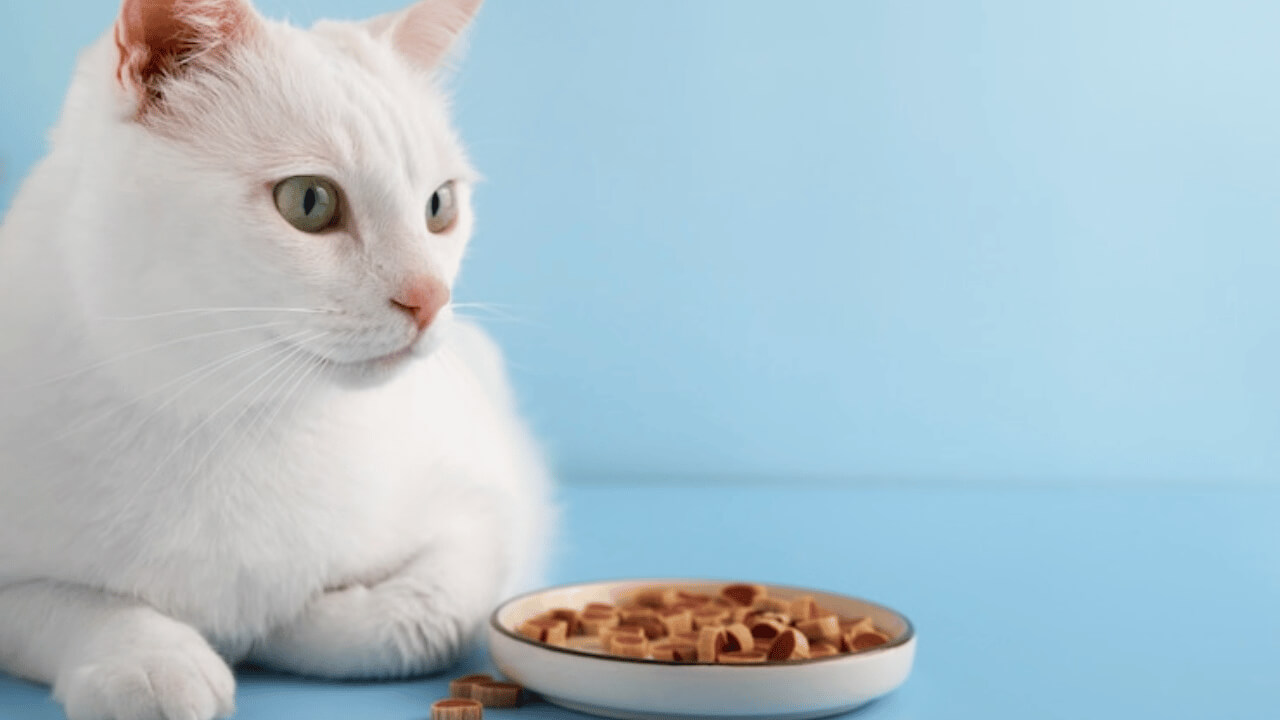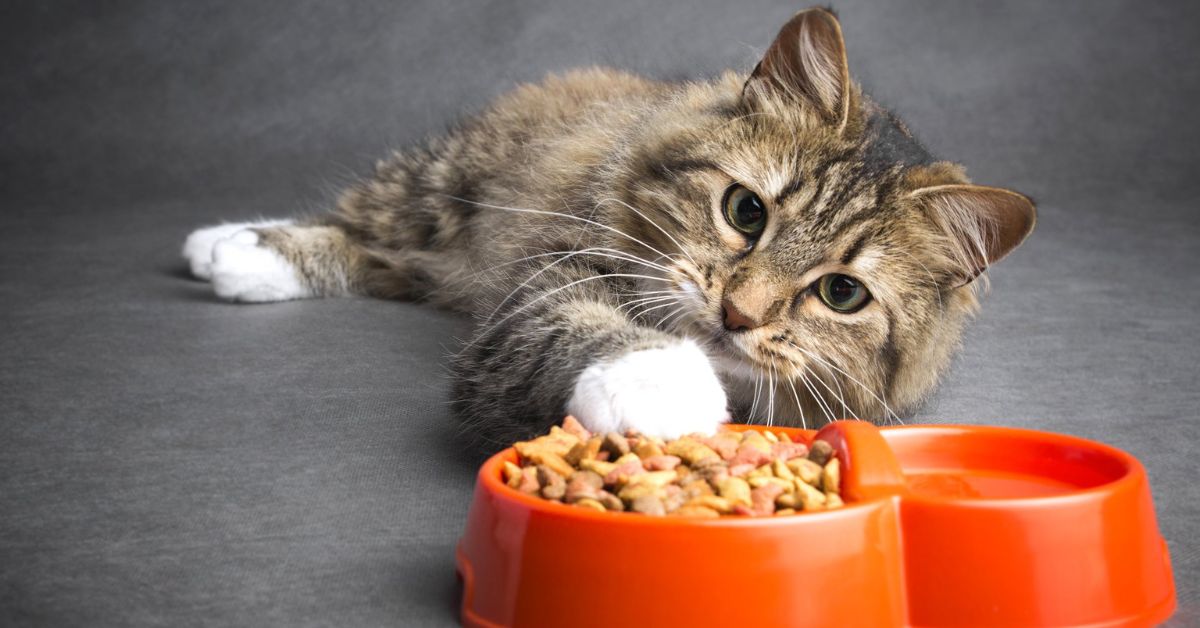When it comes to our feline friends, ensuring they consume a diet that promotes their health and well-being is paramount. One common question among pet owners is, “Can cats eat ketchup?” Ketchup, a popular condiment made from ripe tomatoes, vinegar, sugar, and various spices, is a staple in many human foods.
However, its suitability for a feline diet is a different matter. To provide comprehensive, vet-reviewed nutrition facts, we’ll delve into the potential risks and health impacts of feeding cats ketchup. Understanding the ingredients and their effects on cats is crucial for making informed decisions about their diet.
Join us as we explore if ketchup can be a safe occasional treat or if it should be strictly avoided to maintain a balanced, healthy life for your furry companions.
Can Cats Eat Ketchup?
Can cats eat ketchup? Learn about potential health risks, ingredients to avoid, and how ketchup fits into a cat’s diet. Cats should generally avoid eating ketchup. While a lick of ketchup may not cause immediate harm, it’s often made from ripe tomatoes, vinegar, sugar, salt, and spices that can harm cats.
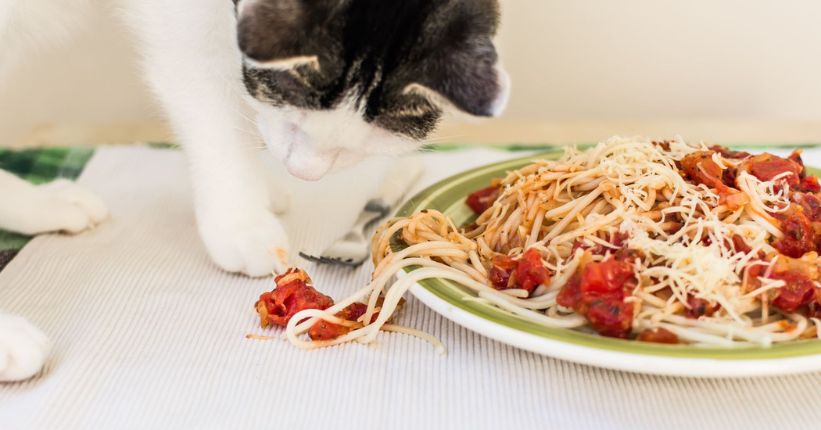
The salt content and acidic nature of ketchup can lead to stomach upset, gastrointestinal issues, and even more severe symptoms like slow heart rate or heart pain. Additionally, excess sugar and spices can disrupt a balanced feline diet. For optimal health, it’s best to stick to quality cat food tailored to their nutritional needs, ensuring they get the essential amino acids and animal proteins necessary for a healthy life.
Why Cats Shouldn’t Eat Ketchup?
One of the main reasons why cats shouldn’t eat ketchup is because it contains a high amount of sugar and salt. These ingredients can be harmful to cats and can lead to health problems. Furthermore, ketchup is made from tomatoes, which are part of the nightshade family.
Nightshade vegetables contain a substance called solanine, which can be toxic to cats. Although tomatoes themselves are not extremely poisonous to cats, consuming them in large quantities or as an ingredient in condiments like ketchup can cause gastrointestinal upset, including vomiting and diarrhea.
Regarding the sugar and salt content, ketchup often contains other ingredients such as onion powder and garlic, which are known to be toxic to cats. These ingredients can cause damage to a cat’s red blood cells and lead to anemia. It is important to note that even small amounts of onion or garlic can be dangerous for cats.
What to Do if Your Cat Eats Ketchup?
If you suspect that your cat has consumed ketchup, it is important to monitor their behavior and health closely. Here’s what you should do: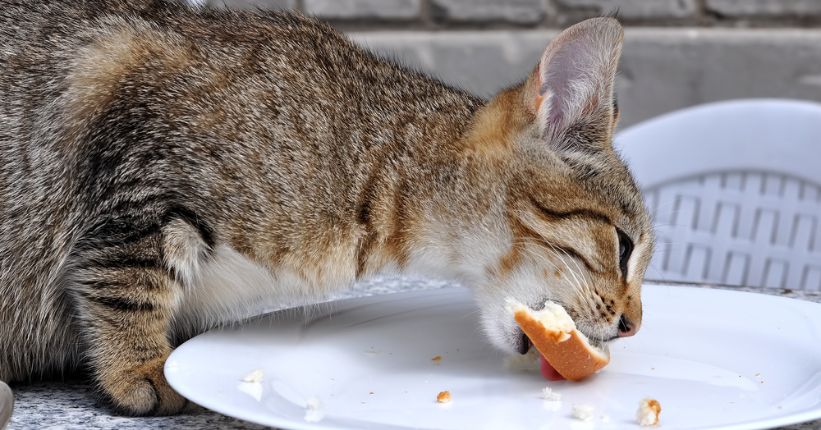
- Assess the situation: Determine the quantity of ketchup your cat has consumed. If it was only a tiny amount, it may not pose an immediate danger. However, if your cat has ingested a significant amount or shows any signs of distress, it is crucial to take action.
- Contact your veterinarian: Reach out to your vet and describe the situation. They will be able to provide guidance based on your cat’s health and circumstances. They may advise you to bring your cat in for an examination or provide specific instructions on how to monitor their condition at home.
- Watch for symptoms: Keep a close eye on your cat for any unusual symptoms. These may include vomiting, diarrhea, lethargy, loss of appetite, or difficulty breathing. If you notice any of these signs, seek immediate veterinary care.
- Limit access to ketchup: To prevent any future incidents, ensure that your cat cannot access ketchup or any other human foods that may be harmful to them. Store condiments securely and be cautious when sharing meals near your cat.
Can Cats Eat Tomatoes?
While cats can technically eat tomatoes, it is important to proceed with caution. As mentioned earlier, tomatoes are part of the nightshade family and contain solanine, which can be toxic to cats. However, the levels of solanine in ripe tomatoes are generally low and may not cause immediate harm in small quantities.
That being said, some cats may have a sensitivity or allergic reaction to tomatoes, resulting in digestive upset or skin irritations. It is always important to observe your cat’s response to tomatoes and consult with your veterinarian before introducing them into their diet.
If you choose to offer your cat a small amount of tomato as a treat, make sure to remove the seeds and avoid serving them any other parts of the plant, such as the stem or leaves, as these contain higher levels of solanine. Additionally, serve the tomato in small, manageable pieces to reduce the risk of choking.
When Is Ketchup Okay For Cats To Eat?
Generally, it’s not advisable to include ketchup, a common ingredient with high sugar content and additional ingredients unsuitable for cats’ digestive systems, in your feline friends’ diets. While a lick of ketchup may not cause immediate harm, its acidic nature and excess salt content can lead to stomach upset, gastrointestinal issues, and other health risks like slow heart rate or heart pain. Cats are obligate carnivores, thriving on diets rich in animal proteins, such as lean proteins like boneless chicken and fish.
Healthy cat foods, whether wet cat food, dry food, or commercial cat food, provide the essential amino acids and other nutrients vital for feline health. To avoid issues in cats caused by inappropriate human foods, pet owners should prioritize balanced cat food over treats like tomato-based products. For occasional treats, consult knowledgeable sources or experts to ensure your furry friend’s diet supports a long, healthy life.
When Is Ketchup Bad For Cats?
Most experts agree that the taste of ketchup, usually made from ripe tomatoes, excess sugar, and additional ingredients, poses health risks to feline friends. Commercial ketchup often contains salt content and acidic nature, leading to stomach upset, gastrointestinal tract issues, slow heart rate, and heart pain.
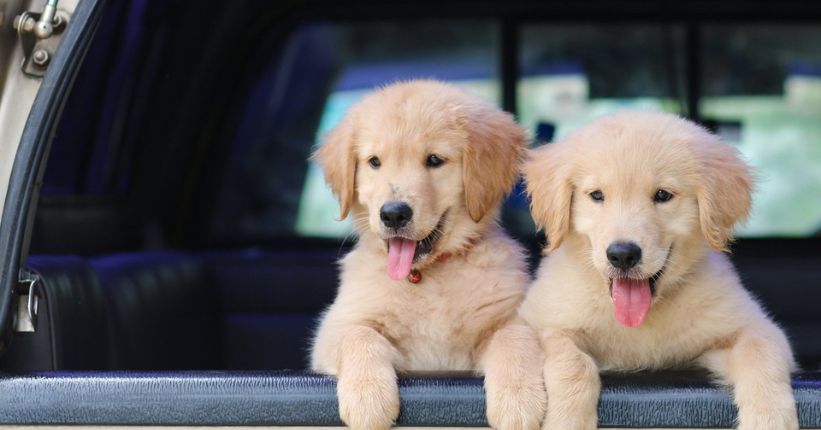
If cats consume green tomatoes or tomato plant parts, they risk more severe symptoms like dilated pupils and loss of appetite. Quality cat food tailored for a balanced diet—whether wet cat food, dry food, or food with preservatives—provides the essential amino acids and animal proteins vital for a healthy life.
While a lick of ketchup as an occasional treat may not cause cats immediate harm, pet owners should prioritize healthier, nutritionally balanced options like boneless chicken or specialized commercial cat food. Refer to knowledgeable answers and doc Web sites for guidance, avoiding human foods that could make cats sick. The key is ensuring your whiskered companions receive food for cats, supporting their overall well-being.
Can Cats Eat Tomato Sauce?
Generally, cat owners should avoid giving tomato sauce to their feline friends due to the potential health risks. Tomato sauce, often made from ripe tomatoes, salt content, and additional ingredients, can cause stomach upset and loss of appetite in cats.
The acidic nature of tomato sauce can lead to gastrointestinal tract issues and upset stomachs, particularly if it contains common ingredients found in human foods, like excess sugar and spices. Even a bit of tomato sauce can disrupt a balanced diet and pose health risks such as slow heart rate or heart pain. For the safety of their furry friends, pet owners should stick to quality cat food tailored to a feline diet, including wet cat food and commercial cat food with essential amino acids.
Nutritional benefits from cat foods ensure a healthy life, avoiding the need for expensive consults. For those emergency questions, knowledgeable answers and reputable doc Web sites are valuable resources to ensure your whiskered companions remain healthy and happy.
Can Cats Eat Vegetables?
Cats are obligate carnivores, which means they primarily need meat to fulfill their dietary requirements. While vegetables may not be a staple in a cat’s diet, some cats may show interest in nibbling on certain vegetables. So, can cats eat vegetables?
In general, cats do not need vegetables to meet their nutritional needs. Their bodies are designed to digest and absorb nutrients from animal products more efficiently. However, some vegetables can be safe and even beneficial for cats in small quantities.
One example is broccoli. Broccoli is low in calories and high in fiber, which can help with digestion. However, it’s important to cook the broccoli thoroughly and give it to your cat in small, bite-sized pieces to avoid any potential choking hazards.
Conclusion
Feeding ketchup to cats is not recommended due to its potentially harmful ingredients. The high salt content, acidic nature, and added sugars and spices can lead to gastrointestinal issues, upset stomach, and more severe health risks like a slow heart rate or heart pain in cats.
While an occasional, tiny lick might not be immediately dangerous, consistently including ketchup in their diet can disrupt their nutritional balance. For your furry friends’ well-being, it’s best to stick to specially formulated cat foods that provide all the essential nutrients they need for a healthy, happy life. Always consult with a veterinarian for any dietary concerns.
FAQ
Can cats have peanut butter?
Cat owners should refrain from feeding their feline companions peanut butter, even though many cats adore the flavor of this salty and sweet spread. Not only does it have little nutritional value, but some of the ingredients—like fat and extra artificial sweeteners—can be poisonous or even hazardous to cats.
Can cats eat honey?
Not at all; honey is not something you should give your cat. As you may know, honey contains a significant amount of sugar, and cats lack the necessary enzymes to break down sugars. A cat that consumes large amounts of honey is likely to have regurgitation, vomiting, diarrhea, and gagging.
Do cats like tomato ketchup?
Because it includes so many components that are negative for cats, ketchup is unhealthy for them and may even be poisonous. Since onions and garlic are poisonous to cats, several of the primary elements in ketchup—namely, the powder—are bad for your cat.

